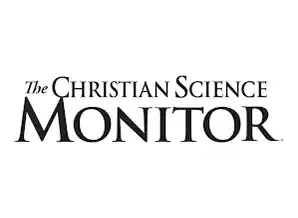January 12, 2023
Solar-powered internet is helping refugees in Kenya study and work online

By Erika Page
The refugee settlement of Kakuma in northwestern Kenya is home to 200,000 long-term refugees from 19 countries. One resident, Innocent Tshilombo, began looking into solar energy following years of limited opportunities for employment or movement. He scraped together money of his own and seed grants to buy a solar panel, an internet node, and a battery backup. Then he taught himself how to put it all together.

Copyright @ Laurie Goering/Thomsen Reuters Foundation/Reuters
Today 17 of these nodes provide internet access to 1,700 residents in the Kakuma settlement. Users pay $5 a month, and many are learning skills from computer science to graphic design and looking for work online. Mr. Tshilombo earned a business administration degree from the free online University of the People, while others are using solar energy to power their local businesses. Finding enough digital work is the next challenge, since competition for jobs with residents outside the camp can be a source of tension. “People have enough time that they can learn big things and do big things if they’re given the right platform,” said the entrepreneur.
